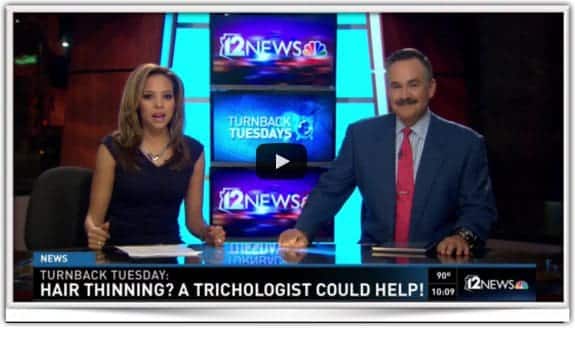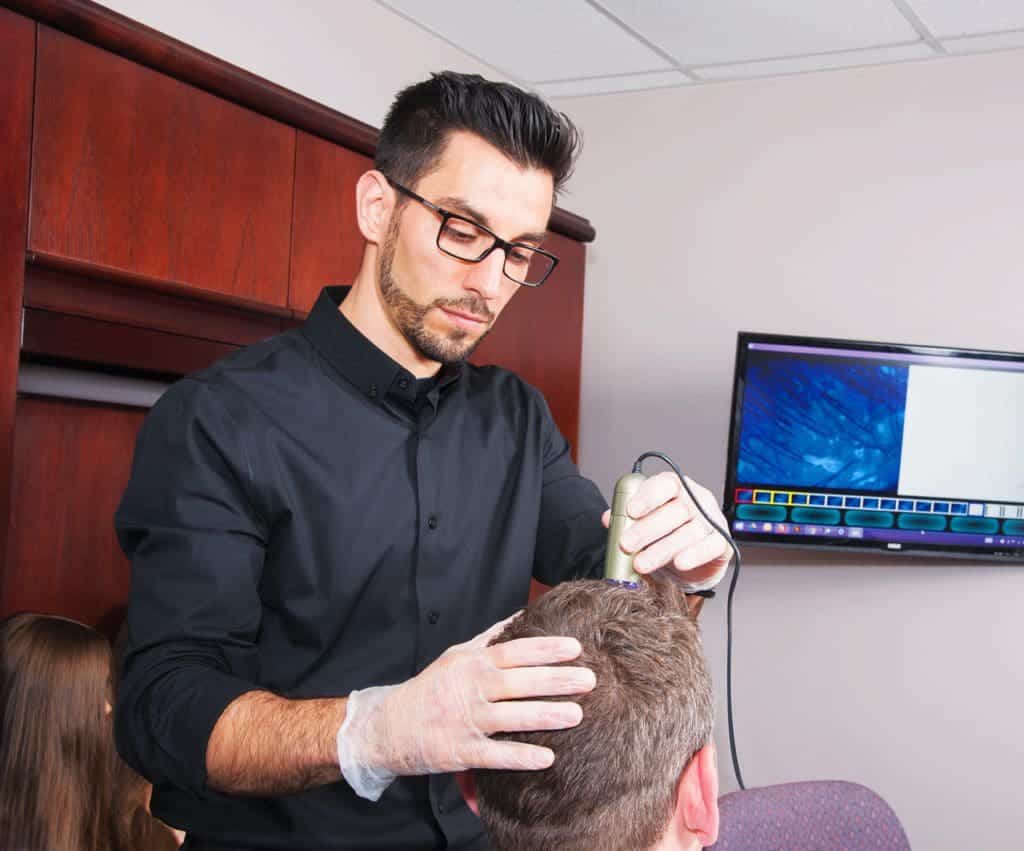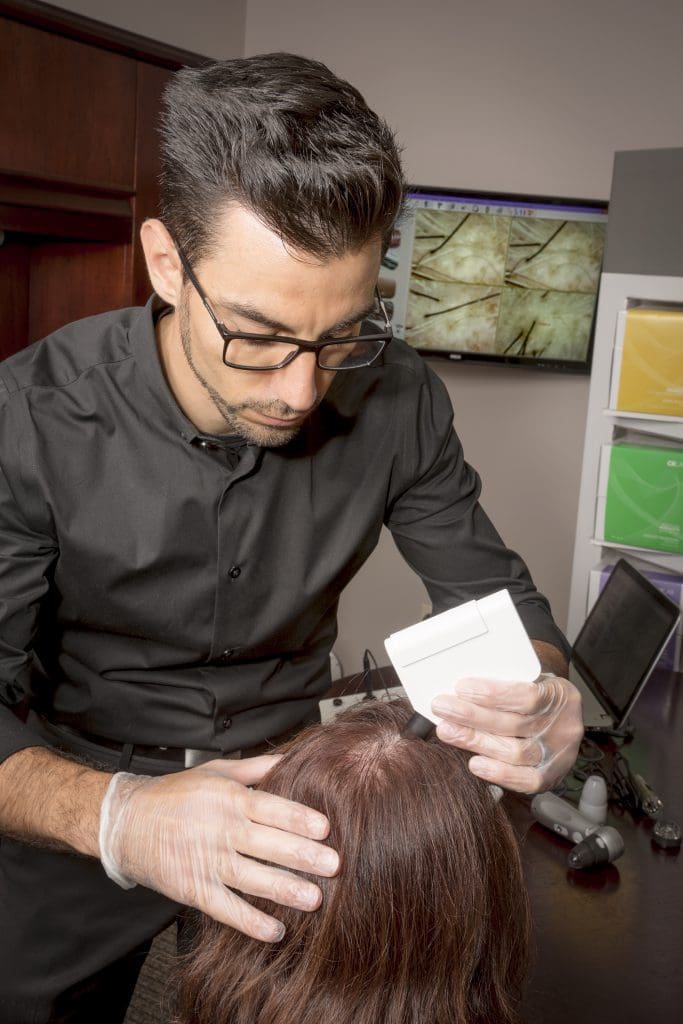Thinning tresses and hair loss can be difficult for men and women of any age. Hair loss can be caused by a variety of factors, including stress, hereditary, the result of illness or disease, or a side effect of medical treatments such as chemotherapy. Any hair loss can be traumatic and impart serious damage to one’s self-esteem.
We’ve heard it from many of our guests – their stress levels may have initially caused their hair loss, which resulted in additional strain. It’s a vicious cycle that’s extremely difficult to break. In dealing with all this added pressure, people turn to different coping mechanisms, such as overeating, staying within the confines of their home or overspending. These methods bring about their own problems and can result in even more concern for the person and their loved ones.






 Here’s how Jeffrey Paul Hair Restoration Center, helped one client address the true cause of her hair loss and get her back on the road toward healthy, beautiful hair.
Here’s how Jeffrey Paul Hair Restoration Center, helped one client address the true cause of her hair loss and get her back on the road toward healthy, beautiful hair.